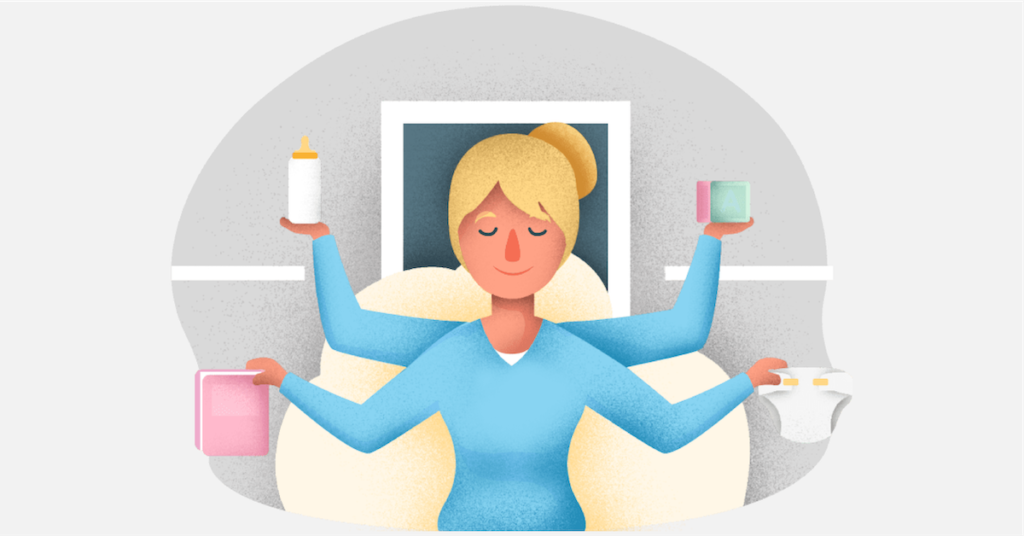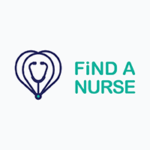
The first thing that Hussein Sleiman confesses to is wanting to become a doctor since he was a child. The second thing he confesses to is suffering from attention deficiency, which he discovered in university while studying to become a doctor. This is the story of how he found his way to entrepreneurship and created Find A Nurse – an online platform with a social impact, helping families find, hire and manage trusted home care providers.
Entrepreneurship Found Me
“I have wanted to become a doctor since I was a child. I wanted to be that guy. The person who helps sick people. During my first year of biology in pre-med, I discovered that it is not exactly what I wanted, for so many reasons. I had personal struggles, one of which was my attention deficiency, that I didn’t know about until I was clinically diagnosed four years later. I discovered that biology was not an exciting subject, with its black and white textbooks. I also discovered that none of the medical inventions were made by doctors themselves,” recounts Hussein of his first year in university. After failing pre-med, he finished his degree in biochemistry and attempted a master’s in biophysical chemistry at AUB. Hussein struggled some more with his attention deficiency and eventually moved into environmental technology, a program he felt was more hands-on and closer to the health sector, merging research and implementation.
His first entrepreneurial endeavor came after he tried donating blood to a cancer patient and got refused at the hospital. He thought of creating a system where people could easily find blood donors on time. After working on the project, he joined a competition at his university and won the prize of going to the University of Cambridge to take a course on entrepreneurship. “Back then I had no idea what entrepreneurship meant. I won and had to go back and google entrepreneurship a few times to understand what it meant,” Hussein recalls amusingly, “but I thought it would be nice because it was Cambridge and everybody wants to go to Cambridge, right?”
After that course, Hussein returned to AUB with a newfound mission: to promote entrepreneurship and social entrepreneurship to fellow students.
Starting with a simple plan
“Between 2015 and 2019, I actively worked on several startup ideas. One of them was ‘My Nurse’. The idea came to me when my cousin, who is a nurse, was complaining of long hours at work. Most nurses who work in hospitals take on extra shifts in private homes to make ends meet. I suggested creating a homecare service based on his nursing experience. Although he agreed at the time, he eventually admitted to me that he didn’t believe in the idea until a few weeks later.”
“Our plan was simple. We wanted to connect nurses to patients, and because we had no budget to place ads on social media and no official entity to talk to hospitals, we targeted patients in local pharmacies. Our door to door strategy proved efficient and after a few visits we had perfected our sales pitch.”
In 2016, Hussein was looking for funding opportunities and ways to boost his business idea. He applied to Berytech’s ‘Mount Lebanon Youth Entrepreneurs’ Competition which aimed to support young entrepreneurs in developing new and innovative ideas and launching their startups. “Berytech’s Business Development Manager, Joanna Abi Abdallah invited us to a meeting to discuss the business model canvas. She advised us to take it online and I hesitated. I was already working on two other startups and I wanted to keep this idea as a small business where I do the marketing, put the plan and then my cousin does the nursing operations and we call it fifty-fifty.”
After applying to another contest at the Darwazah Center for Innovation Management & Entrepreneurship at AUB and receiving the same feedback to take the solution online because it was a big need, Hussein split from his cousin who was not fully committed to the startup, created a team and built the prototype for ‘My Nurse’ during a HealthTech hackathon. He spent the next 7 months with his team of two developers trying to reach a working version of his platform, in poor coordination. Eventually one of the developers dropped out while the second became his co-founder.
“With the basic design, I visited hospitals and clinics to reach out to my target audience, but little result came from all the brochures I was placing in doctors’ offices.”
Find A Nurse for New Mothers

“As we got accelerated in SoUK·LB – a program funded by the British Embassy in Beirut, I discovered that I needed to narrow down my product offering. At first, nursing seemed like one homogenous service, but then it appeared that we needed to break it down into different services and different custom audiences. We moved from medical services to newborn care mostly by coincidence because those were some of the first cases we received.
When we created our online ads, it was mothers who converted into clients, so we rebranded everything to focus on newborn care only. Our solution narrowed down providing professional nursing services for new moms who have no support system, or who wanted to have better sleep at night or people with twins and triplets or people who needed a helping hand and didn’t trust anyone to handle the baby other than a health care professional.
Requests for senior care come to us organically. Targeting patients for senior care has proved to be challenging and costly as it involves several decision-makers with a varied demographic. Finding a nurse for a senior is usually an urgent decision following a health collapse or an accident while planning delivery and post-partum is a longer more researched process with a single informed decision-maker.”
“Hussein and Khulud [Khulud Khalil – Chief Nursing Officer] are both highly energetic entrepreneurs constantly exploring new opportunities to grow their startup. Find A Nurse is a promising business model that will grow to become the top-of-mind platform in the Arab region for anyone looking to source qualified and temporary nursing services at home. The founders have yet to streamline the potential sectors that will give them a Unique Value Proposition to build a strong identity,” comments Gilbert Tegho, CEO of e-ecosolutions and one of the mentors of Find A Nurse. Gilbert is also enrolled in the Impact Rise Program.
Today Hussein is working with his team on scaling the company in the GCC region starting with Qatar. From there, he plans to take Find A Nurse to the KSA and the UAE.
Fadi Hayek, their coach in the Impact Rise Program, comments, “The management team of Find A Nurse is well structured, and its members work efficiently together. As the operation in Lebanon is being well looked after by Khulud, this has allowed Hussein to find the time to try to expand the business into other countries.”
He continues that the startup operates a business model that has a significant multi-layered social impact and creates tremendous social value. “Besides empowering women by providing them with training and part-time job opportunities and creating additional income for nurses who need it, the social impact of Find A Nurse extends also to their clients who are generally working people who need quality infant or child care or elderly care to enable them to continue to be productive,” continues Hayek.
Advice to Entrepreneurs, With or Without Attention Deficiency
“I have come up with 6 or 7 ideas over the last 7 years. These are the ones that had some plan to become a startup, regardless of how advanced it was. From that experience, I feel like you always need to start somewhere. The biggest trap that entrepreneurs fall in is that they keep postponing, until they have a team, until they have the funding, etc. It doesn’t matter. It doesn’t matter what you do as long as you are not spending your dad’s money! It’s ok to fail but don’t fail big. Use your time and your effort well. Whatever you do is a good learning experience. You will always attract the right people. You will learn how to build a team. This has been the toughest thing from my experience. You will know if it’s worth pursuing when you talk with clients, investors and partners, and this experience will get you better prepared for the next experience and so on.”
“I don’t believe in asking people’s opinions. People will give you all sorts of opinions. Their opinion doesn’t matter unless they are your clients and you put them in a certain environment where they are trying your product or service. What matters is that you experiment: create an MVP and set up fake ads and see if people react to it or not. You can get a lot done with very few resources. Get started anyway, anyhow, and stop giving excuses.”
“We always look at what we don’t have and say this is the reason why we are not there yet. That’s a very human tendency. We look at what they don’t have and think that this is what we need to either become happy or more successful. Startups struggle with development because it looks like development is a skill that could get you a lot of money which is not true. Whatever makes you money with an app can make you money without the app. The app makes it less costly at scale. On a small scale, the application will prove costly. People procrastinate because they don’t have the money to pay the developer to build the app thinking it’s the solution to all their problems, while the first thing they could do is get started, define their MVP, talk to potential clients, all the elements of a lean startup which should be the bible of entrepreneurship for anyone who has come up with an idea.”
“You need to know that it doesn’t matter whether you are good at a hundred things or only at one. What I learned from having attention deficiency is that you need to find out what you are good at and build on that. Some things are obvious for the majority of people, that I cannot do, as simple as reading a contract or writing a long passage. I need assistance but I learned that I should not be focusing on this kind of activity that would make me feel not up to the level. Find your superpower, the thing that makes you unique, work on developing this rather than looking for your weaknesses and trying to improve them.”
Impact Rise Program

The Find A Nurse team is currently enrolled in Berytech’s Impact Rise Social Innovation Program, funded by the U.S.-Middle East Partnership Initiative (MEPI). They were chosen based on the startup’s business and innovation potential, business model, scalability, team compatibility and expertise, as well as their ultimate social and environmental impact. They are being coached by Fadi Hayek, and mentored by Joseph Otayek, Andre Abi Awad and Gilbert Tegho, all three also enrolled in the Impact Rise Program.
“With its social impact, innovative business model based on a solid IT infrastructure, and competent and ambitious management team who are able to adapt quickly to the changing economic environment, Find A Nurse has a promising future and should be able to scale up quickly both locally and internationally,” concludes Fadi Hayek.








